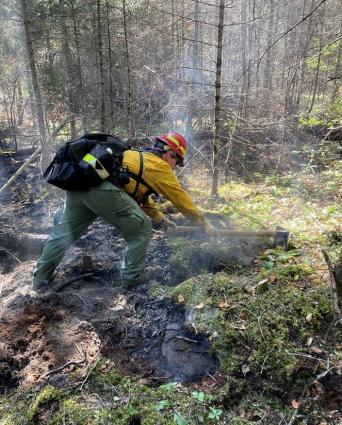Explaining what wildfire 'containment' numbers mean
In WTIP’s ongoing coverage of wildfires in and near the Boundary Waters this summer and fall, listeners were likely to hear mention of how “contained” the various fires were with regard to suppression efforts.
For example, many WTIP listeners likely heard “the Greenwood Fire is 67 percent contained,” or “the John Ek Fire is zero percent contained.”
When it comes to wildfires, ‘containment’ indicates how much of the fire perimeter has been surrounded by a control line that the fire is not likely to move beyond, according to the National Wildfire Coordinating Group. In other words, rather than describing how much of the entire fire has been put out, containment refers solely to the perimeter itself and its potential for growth.
During a meeting of the Cook County Board of Commissioners Tuesday, Sept. 14, Emergency Management Director Mike Keyport said the containment percentage often cited in media and by the Forest Service can be confusing for the public to understand regarding the active threat from any given wildfire.
A way to think of it is this: containment refers to a human-made or natural barrier that prevents a wildfire from spreading. Examples of these barriers include trenches dug using heavy machinery or with hand tools. Natural barriers include things such as lakes, rivers or roads.
The audio below is Keyport sharing an update on some of the recent wildfires impacting the WTIP listening area.
Tweet







